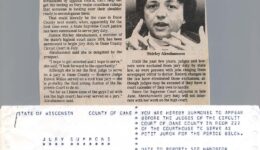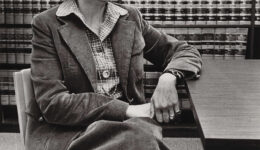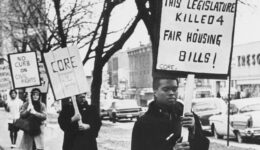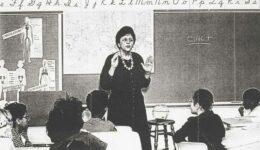admin
Posts by :
A Call to Jury Duty

Abrahamson was the first Wisconsin justice to be a juror. During her career on the Wisconsin Supreme Court, she served on juries in two cases.
Trying to Cook

Abrahamson was known to work such long hours she rarely cooked. At her retirement party, ex-governor Jim Doyle recalled a time when she promised to bring his ailing mother chicken soup. She arrived bearing a can of Campbell’s soup!
Teaching & Practicing Law

Despite the extraordinarily heavy workload, Shirley loved teaching and practicing law so much, she continued to do both for 10 years.
First Full Professors

In 1966 the University of Wisconsin Law School named Shirley and her friend Margo Melli its first two female full professors. Shirley also continued to work at the LaFollette firm.
The Beginning of Fair-housing Law

Shirley helped write Madison’s fair-housing ordinance—the first fair-housing law in Wisconsin.
Fighting for Civil Liberties

While at LaFollette, Shirley headed the Madison office of the Wisconsin Civil Liberties Union. She also served on the Mayor’s Commission on Human Rights
State ex rel. Bilder v. Town of Delavan, 112 Wis. 2d 539, 334 N.W.2d 252 (1983)
A police chief sued the Town of Delavan regarding his suspension for alleged misconduct while in office. A newspaper sought access to the court file. In a unanimous opinion, Abrahamson held that newspapers have a protectible legal interest in opening court documents for public examination. Pleadings and exhibits on file with the circuit court fall within Wis. Stats. §59.14, which reflects a basic tenet of democracy–people have the right to know about the operations of their government, including the judicial branch. There are limited exceptions to this rule, but the police chief did not meet them.
Schill v. Wisconsin Rapids School District, 2010 WI 86, 327 Wis. 2d 572, 786 N.W.2d 177
Wisconsin drafted its public records law before email technology existed. This case involved an open records request for personal emails that teachers sent and received on government email and computer systems. Abrahamson held that Wisconsin’s Public Records Law is a powerful tool for keeping track of government, and email generally qualifies as a “record” under that law. However, personal emails that evince no violation of law or policy should not be released to the public simply because they were sent and received on government email and computer systems.

